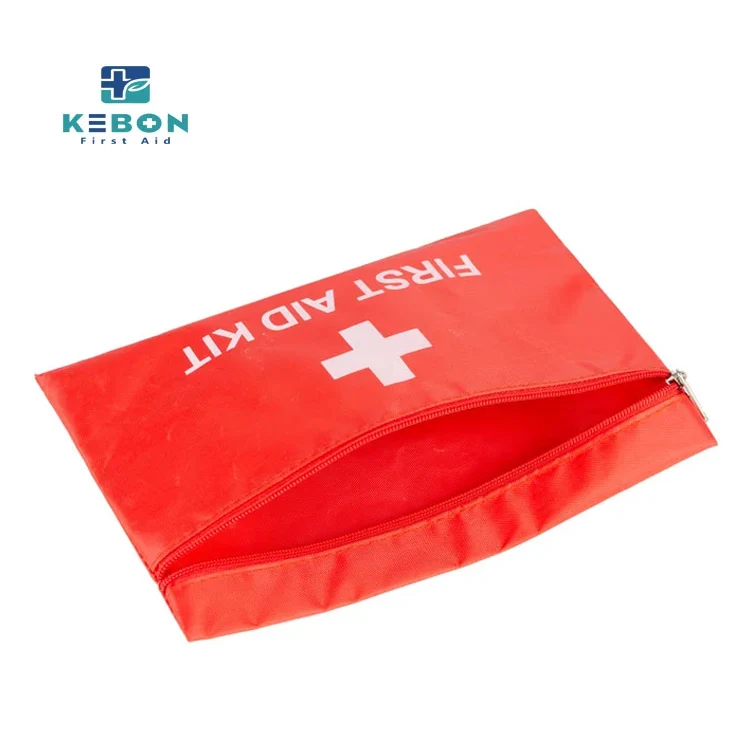How to Determine Whether the Pet First Aid Kit Is Complete
2025-06-23
A pet first aid kit is an essential tool for any pet owner, providing the necessary supplies to address injuries, illnesses, and emergencies until veterinary care is available. It can make a significant difference in managing your pet’s health, whether you’re at home, on the road, or in remote areas. However, it’s important to ensure that the first aid kit is comprehensive and well-stocked. The completeness of a pet first aid kit can be determined by checking for a variety of key items and supplies, as well as understanding the specific needs of your pet.
1. Basic First Aid Supplies
The foundation of any first aid kit includes basic supplies for treating minor injuries and illnesses. A well-stocked pet first aid kit should include:
Sterile Gauze Pads: These are essential for cleaning and dressing wounds, helping to absorb blood and prevent infection.
Adhesive Bandages (Self-Adhesive or Vet Wrap): These are used to secure gauze or bandages in place. Vet wrap is particularly useful since it adheres to itself and is gentle on your pet’s skin.
Antiseptic Solution: An antiseptic solution, such as iodine or hydrogen peroxide, is crucial for cleaning wounds before dressing.
Antibiotic Ointment: This can be used to prevent infection in minor cuts and abrasions.
Cotton Balls and Swabs: Cotton balls and swabs are useful for cleaning wounds or applying ointments to the affected area.
2. Tools for Emergency Care
Having the right tools for administering immediate care can be vital. Make sure your kit contains:
Scissors (Non-Serrated): These are useful for cutting bandages, tape, or even your pet’s fur in emergency situations. Non-serrated scissors are preferred to avoid causing accidental cuts.
Tweezers: Tweezers help in removing splinters, ticks, or other foreign objects from your pet’s skin or paws.
Thermometer: A thermometer is essential for checking your pet’s temperature, which can indicate fever or other health issues.
Instant Cold Pack: Cold packs are useful for reducing swelling and alleviating pain from sprains, strains, or bites.
Disposable Gloves: Gloves help to maintain hygiene when treating wounds or administering medication.
3. Medications
Having some basic medications on hand can be crucial for managing pain, allergies, or digestive issues:
Aspirin or Acetaminophen (For Pets): While these medications can help relieve pain, they must be pet-safe. Never give human medications to pets without veterinary advice.
Antihistamines (For Allergies): An antihistamine like Benadryl can be useful for treating allergic reactions, but it’s important to consult a vet for the correct dosage for your pet.
Activated Charcoal: In case your pet ingests something toxic, activated charcoal can help absorb toxins. Always call your vet immediately in such cases.
Antidiarrheal Medications: Diarrhea can be a sign of a variety of issues, so having an antidiarrheal like Imodium may be helpful in some emergency situations.

4. Specialized Pet Supplies
Since pets have unique needs compared to humans, certain items should be tailored specifically for animals:
Muzzle: A muzzle can be useful if your pet is injured or in pain and may become aggressive or try to bite. Ensure it fits correctly and is designed for pet use.
Pet-Specific Tapes: These tapes are designed for use on animals and can be used to secure bandages without causing irritation.
Eyewash: Pet-safe eyewash or saline solution should be in the kit to flush out any foreign substances from the eyes.
Paw Protection: Products like paw balm or booties can help treat and protect your pet’s paws, especially after walks on hot pavements or in rough terrain.
Emergency Leash: A leash is essential to control your pet, especially if they are in pain or in an unfamiliar situation.
5. Identification and Emergency Contact Information
Having emergency contact information on hand is crucial:
Veterinary Contact Information: A list of your vet’s phone number, address, and after-hours emergency contact.
Pet Identification: In the case of an emergency or evacuation, it’s important to have your pet’s identification and microchip information readily accessible. A pet’s medical history, including allergies and current medications, should also be included.
6. Pet-Specific Conditions and Needs
Different pets may have specific needs depending on their breed, age, or medical history. For example:
For Cats: You may need additional supplies like a cat carrier, cat-friendly sedatives (if prescribed), or flea and tick medication.
For Dogs: Larger dogs might require larger bandages and more pain-relieving medication, while smaller dogs may have different dosage requirements.
For Exotic Pets: Exotic pets like reptiles or birds may require unique items such as heat packs or specialized bandages.
7. Checking Expiry Dates and Replacing Used Items
Even a well-stocked pet first aid kit can become incomplete over time if supplies are used or expire. Regularly check the expiration dates of medications, bandages, and antiseptic solutions. Replace used or outdated items promptly to ensure your kit is always ready for use.
8. Training and Knowledge
Having the right supplies is important, but understanding how to use them is equally essential. Pet owners should educate themselves about common pet emergencies, basic first aid procedures, and when to seek professional veterinary care. Many local organizations offer pet first aid courses that can help you prepare for an emergency situation.
Conclusion
A complete pet first aid kit is an essential resource that can save your pet’s life during an emergency. It should contain basic first aid supplies, medications, tools, and pet-specific items tailored to your pet’s needs. Regularly check the contents of the kit, replace expired or used items, and familiarize yourself with how to use the items effectively. By ensuring that your pet first aid kit is complete and up-to-date, you can confidently handle emergencies and provide the best care for your pet in times of need.
As a professional manufacturer and supplier, we provide high-quality products. If you are interested in our products or have any questions, please feel free to contact us.